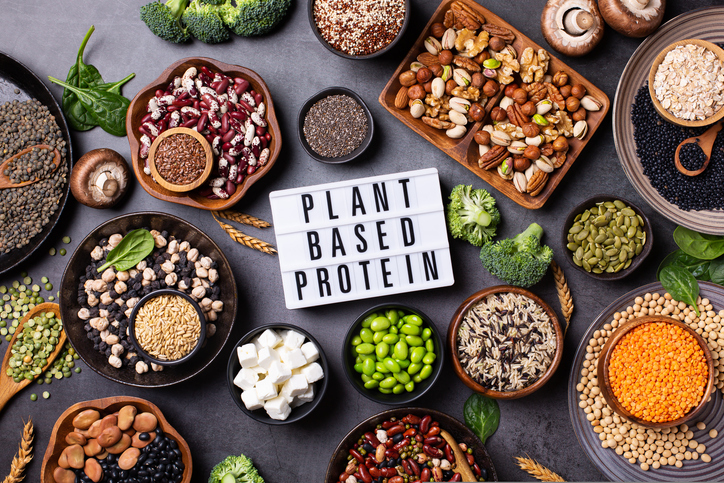
The Ministry of Agriculture, Nature and Food Quality (LNV) aims for the Dutch to consume an equal amount of plant and animal proteins by 2030. The trend towards this seems to have started cautiously, but acceleration is needed. This is evident from the first Protein Monitor carried out by Wageningen Economic Research on behalf of the Ministry of Agriculture, Nature and Food Quality.
Protein monitor
In the current Dutch diet, 39 percent of proteins come from vegetable sources and 61 percent from animal sources. The Protein Monitor has been developed to monitor annually whether protein consumption in the Netherlands is indeed shifting towards 50/50. The monitor provides a unique insight into the consumption patterns of individual and groups of consumers in their social context and also shows why consumers choose vegetable protein products or meat and dairy. In addition, the monitor maps the range of plant and animal protein products in the supermarket, including the way in which they are offered. 570 consumers entered their consumption pattern via an app. And a survey among 3,000 respondents provided insight into why consumers choose vegetable and animal proteins
Adhered to meat and dairy
The Protein Monitor shows that the majority of participating Dutch consumers are still devoted to meat and dairy. ‘We see a cautious shift towards more plant-based protein consumption. But it’s not going fast enough.’ This is stated by Marleen Onwezen, expertise leader in Consumer Behavior at Wageningen University & Research. ‘Consumers value meat and dairy more than vegetable protein products. We also see that habits for animal products are stronger, that consumers know better how to cook with animal proteins and eating animal proteins is more accepted in our social environment.’
Choosing animal is easier
The protein monitor also shows that consumers are less motivated to choose vegetable proteins than meat and dairy. This is partly because the environment still pays too little attention to plants. Onwezen: ‘The focus in supermarkets is still mainly on animal products; those are the standard. This applies to product introductions, portion sizes, prices, private labels, location and variety. In supermarkets there is significantly more attention for products containing animal proteins. This means that these products have more space on the supermarket shelves and there are more offers for these products. Supermarkets seem afraid of losing customers if they promote plant-based products too much. What also plays a role is that most recipes offered to consumers still contain animal products. As a result, consumers lack the skills to prepare tasty plant-based meals.’ The researchers state that the choice of animal proteins is currently being made easier and more attractive for consumers. The vegetable proteins that consumers are most open to purchasing are unprocessed products, such as nuts and legumes. Onwezen: ‘These products are also very sustainable and healthy, a great opportunity to see how these products can also be used as alternative proteins.’
There’s work to be done
According to the researchers, consumer perception must change, the supply of vegetable proteins must improve and there must be more marketing attention for plant-based. “This monitor shows that there is work to be done to get to 50/50 more quickly,” says Onwezen. ‘We need strong interventions. Plant-based alternatives to meat and dairy should be promoted much more based on the strength of those products. For example, by emphasizing that you don’t need meat for the tastiest curry, but lentils, beans or other legumes.’
Source: Wageningen University & Research




